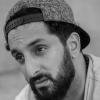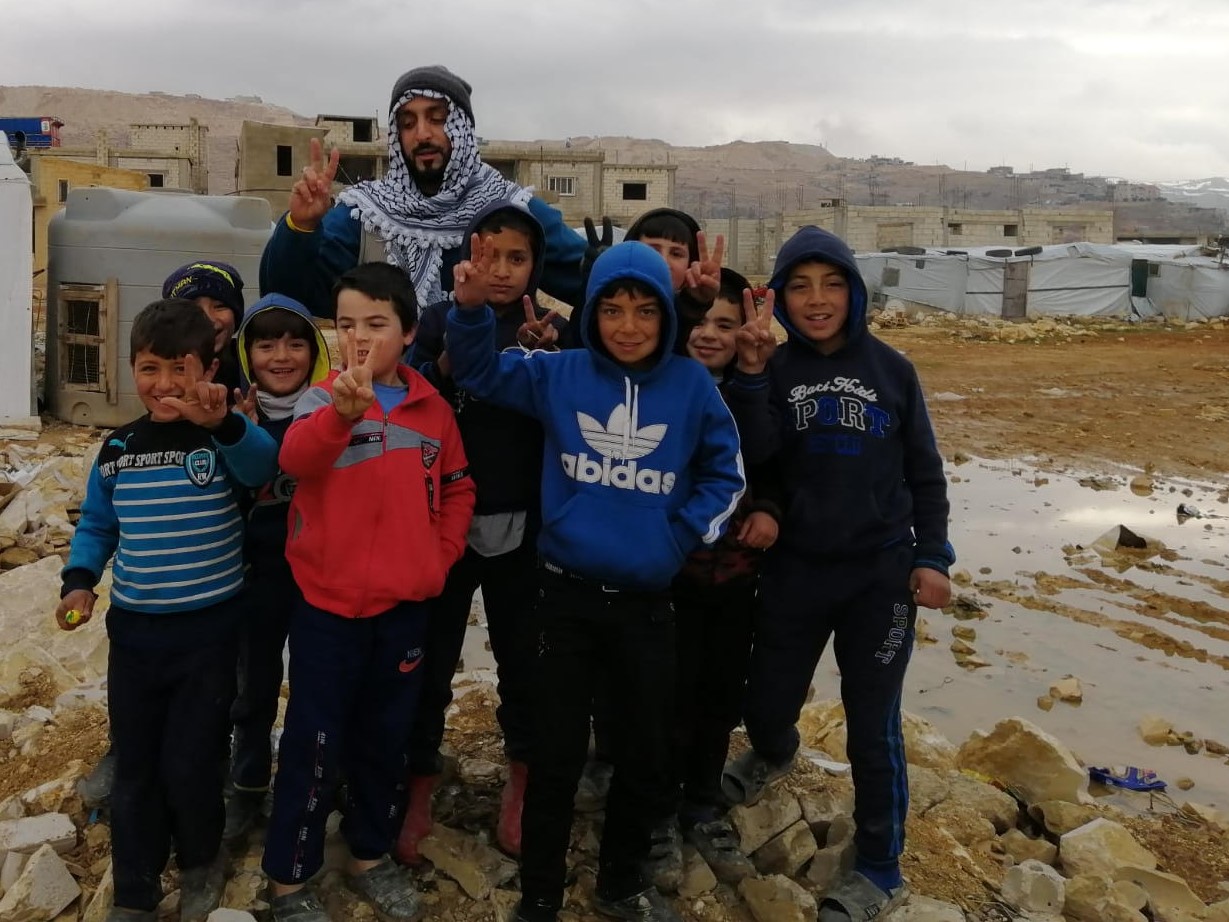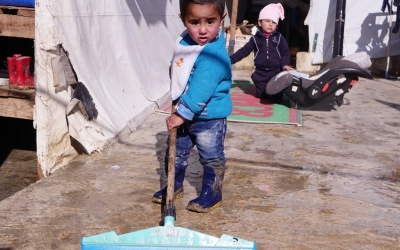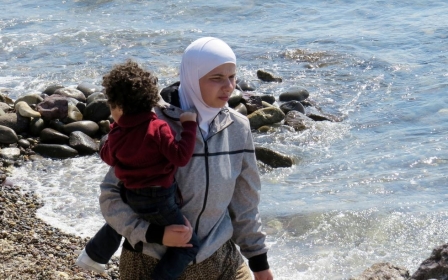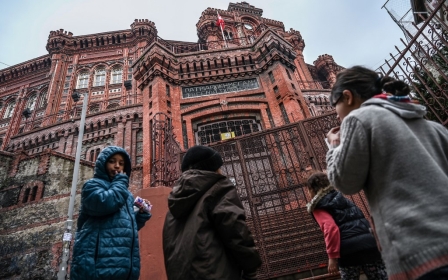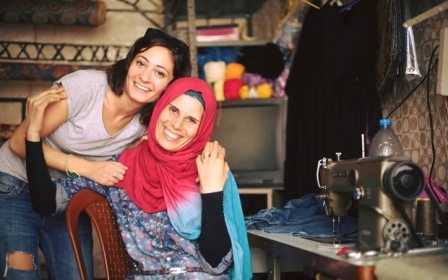Syrian refugees in Lebanon: Abandoned by the world
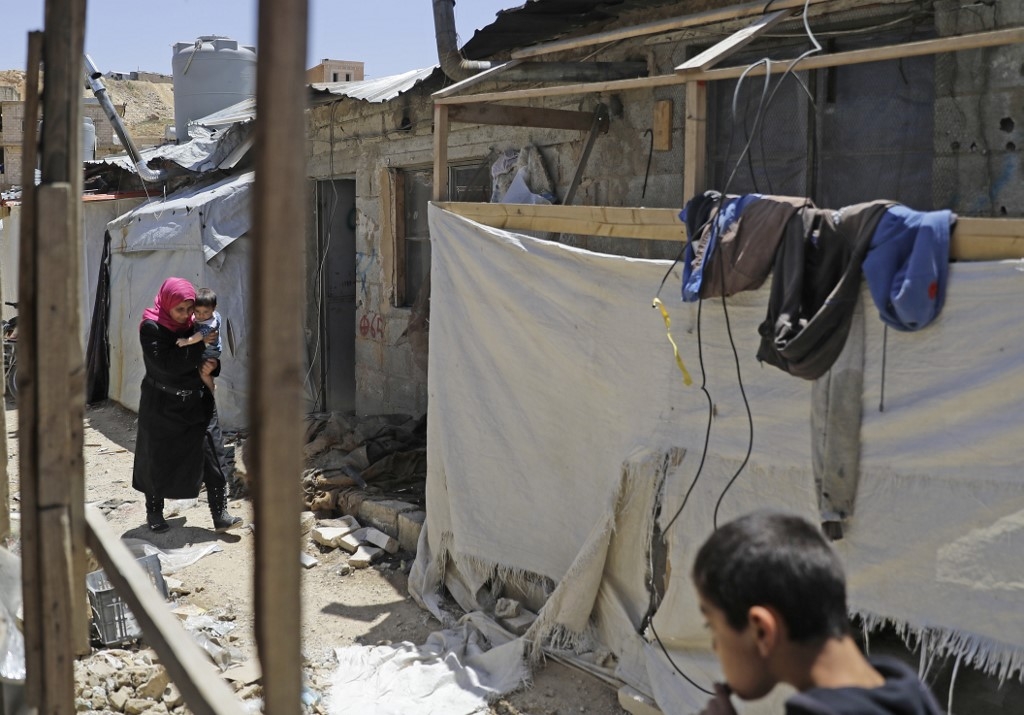
On the Syria-Lebanon border in the Arsal and Beqaa region, large numbers of vulnerable Syrian families are living through the ferocious winter months.
Our winter humanitarian campaign focuses on distributing vital aid in the form of food and fuel. Camp conditions are below standard, and support from NGOs and charities is starting to fade away due to a lack of funds, or a lack of clarity on how to bring this crisis to an end.
After visiting many families within the various camps, I found that the US funding gap had seriously affected some of the most vulnerable refugees, leaving them reliant on the mercy of God and the compassion of good people for their survival.
From dead to alive
One family in particular made me realise the severity of policy changes on innocent victims of war. We entered their broken tent in a camp called “Children of Martyrs” and met Ali, a man from Homs, who sat next to a fuel burner, his tattered crutches leaning against the poorly insulated inner wall. Ali left Syria in 2013 after his home was bombed and he sustained injuries to his right leg.
He was smuggled to Lebanon, where he had his first operation to remove the bulk of the shrapnel lodged in his leg, and was then transferred to the camp. He received no aftercare for the operation, and his wound eventually became gangrenous.
Syria opened its doors to the world ... but now, Syrians find themselves mistreated, abused and left to live in literal dumps
As we spoke, his mother entered the tent, with food and fuel that we had distributed to the camp half an hour earlier. She clearly had much to get off her chest and did not waste any time. She explained how initially, she thought Ali had been martyred in the bombing; she only found out months later that he had survived and was in a camp in Lebanon. Her other sons had driven her away from their home as the bombs rained down on Homs.
Although a strong and proud woman, she was clearly still upset when recalling the events of 2013. Just imagine the trauma of believing your son to be dead, only to find out months later that he was still alive.
'I used to have dignity'
Ali’s mother spoke angrily about the lack of support or help her son had received from UN agencies or charities since he arrived in the camp. Why, she asked me, did no-one care about them?
She said she initially received some UN support, around $27 a month, until last year - and this was all they had to buy fuel, food and medicine. As she spoke of this, her anger and pain began to flow freely.
“I used to have dignity, and my head was held up high when I was in Syria. I had a home and my children around me, and every year I gave sadaqah and zakkat to people in need,” she said. “From every crop of potatoes, peaches and apples, hungry people would come, and we would distribute to everyone and still have enough left for us.
“Now, I find myself here begging and going for months eating dry bread, hanging my head in shame, with not even a bottle of oil to my name.”
The feeling of being abandoned is prominent in the Syrian refugee community. Syria opened its doors to the world, and history bears witness to that - but now, Syrians find themselves mistreated, abused and left to live in literal dumps.
Injured and deserted
Two years ago, doctors told Ali that his leg would need to be amputated. He was told the operation could not be done in Lebanon, and he would have to return to Syria for the procedure, at a cost of around $10,000. This family cannot afford fuel or bread to survive, let alone a life-saving operation.
Their situation is so bad that they use the material from nappies to protect his wound, and when they have run out, they have removed some of the insulation from the walls to use instead, making their tent even colder during the miserable winter weather.
When I left their tent, I felt pained, as though this had been my own mother telling me how she had been wronged and deserted by the world. I could not stop thinking about her final words: “Alhamdulillah [thank God] for everything” - something, indeed, to implement more in my own life.
The views expressed in this article belong to the author and do not necessarily reflect the editorial policy of Middle East Eye.
Middle East Eye propose une couverture et une analyse indépendantes et incomparables du Moyen-Orient, de l’Afrique du Nord et d’autres régions du monde. Pour en savoir plus sur la reprise de ce contenu et les frais qui s’appliquent, veuillez remplir ce formulaire [en anglais]. Pour en savoir plus sur MEE, cliquez ici [en anglais].


